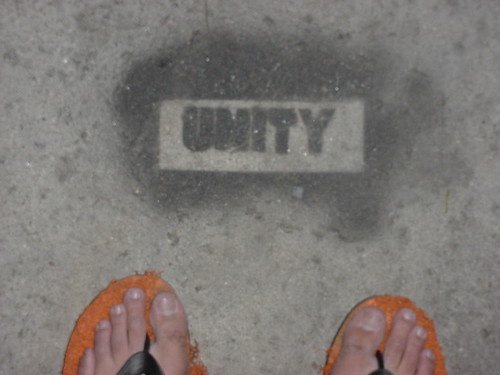 |
| Photo Credit: jasoneppink |
In chapter four of his book, Dr. Rah contrasts five different cultural expressions that deeply impact our relationships with others and our perspective on the world around us. These expressions are not considered good or bad in comparison to one another but are quite different, nonetheless. Here are the cultural expressions that he focuses on, including brief descriptions from the book:
Individual vs. Group OrientationBy understanding our own cultural expressions, we will be in a better position to relate to others that may come from a different cultural background. In turn, we will begin to value how other cultures fill in the gaps of our own and we will also see the contribution that our unique culture can bring to the Body of Christ. Having spent a good portion of my adult life in a cultural context that is not my own, I have become more aware of the subtle (and not so subtle) ways that our culture affects our views on the world and shapes our perspective on what is right and wrong.
"In a culture oriented toward the individual, the focus is on the individual taking initiative. People are judged on individual traits, and individual priorities are often placed ahead of the group. In a group-oriented culture, however, the focus is on acting cooperatively with a high priority of friendships and relationships. Identity is determined through group affiliation, and members put the team or group before the individual."
Guilt vs. Shame
"Shame…arises out of a group-oriented consciousness, while guilt emerges from a sense of individualism. Shame focuses on becoming a person of honor, while guilt focuses on having a clear conscience. Shame deals with one’s core identity and a sense of duty to fulfill moral obligations arising for the social context. Guilt attempts to arrive at a clear conscience and the avoidance of sin. Build can be seen as "the emotional core of our conscience" while shame can be seen as "the emotional core of our identity." Guilt is corrected by personal confession, while shame is corrected by transformation."
Equality vs. Hierarchy
"A culture of equality means that individuals can make assumptions about a degree of equality implicit in the group. An individual is usually not limited in his/her role because of position. There are assumptions that all of the participants have equal access and opportunity. In contrast, those who fall on the hierarchy end of the spectrum prefer to take direction from those above, have strong limitations about appropriate behavior for certain rules, respect and not challenge those in power because of their status and position, and enforce regulations and guidelines."
Direct vs. Indirect
"Individuals in direct culture are more forthright in speaking and less concerned about how it is said. They openly confront issues and engage in conflict. Direct conversations focus on short, matter-of-fact questions in order to show respect for the person’s time, and the best type of answer is presented for informational purposes only. For indirect culture, however, it is not just what is said, but how it is said. There is a tendency to avoid difficult or contentious issues and to avoid conflict altogether. Indirect culture focuses on not offending the other person and keeping that "feel-good" atmosphere."
Task vs. Relationship
"Those who have a strong task orientation tend to define people based on what they do. They tend to get right to business with the assumptions that relationships will come later. Because of this high task orientation, this group will allow work to overlap with personal time. In a task-oriented culture, personal relationships and issues often distract from the important task at hand. Personal feelings are kept separate from objective issues. The focus is on getting the job done and handling the task in a logic-oriented manner. In a relationship-oriented culture, people are defined based on who they are. Before getting down to business, it is important to establish relationships. And certainly work should not impinge on personal and family life. In this cultural context, there is a strong feeling orientation. Communication in a relationship-oriented culture has the primary goal to promote a "feel good" atmosphere and a friendly environment."
Although there are some things that are always right or always wrong (for example, rape is never justifiable), much of what we as Christians naturally assume to be biblical is actually cultural in nature (for example, whether a church uses hymn books or not). By becoming a good student of both the Bible and of culture, we will become more adept at recognizing (and appreciating) the diversity that God has given to us. We will also grow in humility as we seek to learn from and esteem those that are different from us. God does not want us to all be the same but He does want us all to be one.
No comments:
Post a Comment